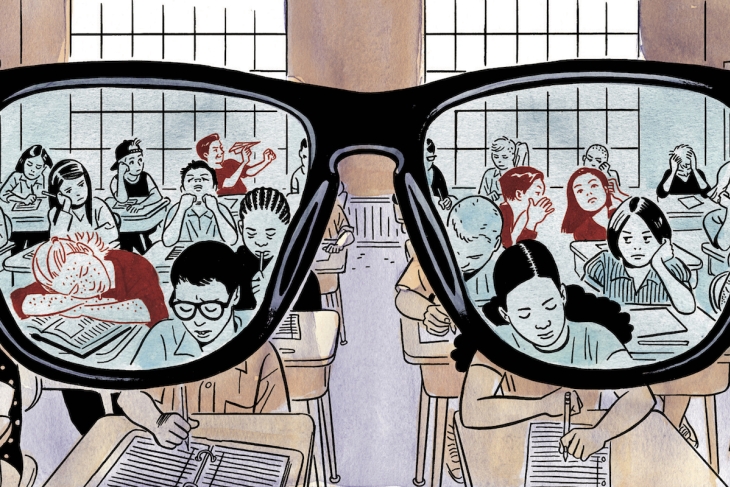The debate over school discipline reform is one of the most polarized in all of education. Advocates for reform believe that suspensions are racially biased and put students in a “school-to-prison pipeline.” Opponents worry that softer discipline approaches will make classrooms unruly, impeding efforts to help all students learn and narrow achievement gaps.
To determine how practitioners see this complex issue, we partnered with the RAND Corporation to survey a nationally representative sample of more than 1,200 teachers in grades three through twelve. And because racial and socioeconomic equity is a key consideration in the discipline debate, we oversampled African American teachers and teachers in high-poverty schools to ensure that their views were represented—something not attempted in any prior discipline survey.
Discipline Reform through the Eyes of Teachers, co-authored by Fordham Institute researchers David Griffith and Adam Tyner, yielded five findings:
- Teachers in high-poverty schools report higher rates of verbal disrespect, physical fighting, and assault—and most say a disorderly or unsafe environment makes learning difficult.
- Most teachers say discipline is inconsistent or inadequate and that the recent decline in suspensions is at least partly explained by a higher tolerance for misbehavior or increased underreporting.
- Although many teachers see value in newer disciplinary approaches—such as Positive Behavioral Interventions and Supports (PBIS) and restorative justice—most also say that suspensions can be useful and appropriate in some circumstances.
- Most teachers say the majority of students suffer because of a few chronically disruptive peers—some of whom should not be in a general education setting.
- Despite the likely costs for students who misbehave—and their belief that discipline is racially biased—many African American teachers say suspensions, expulsions, and other forms of “exclusionary discipline” should be used more often.
These findings are the basis for four recommendations:
- Federal and state policy should “do no harm” when it comes to school discipline.
- Local school districts should give teachers and principals greater discretion when it comes to suspensions.
- Advocates for potentially disruptive students should focus on improving the environments to which they are likely to be removed, including “in-school suspension” and “alternative learning centers.”
- Additional resources should be used to hire more mental health professionals and teaching assistants in high-poverty schools—not to train teachers in unproven “alternatives to suspension” that may do more harm than good.
In short, we need to address the disciplinary challenges schools are facing—and accept that they may take more time and money to overcome—instead of saddling them with yet another unfunded mandate.


